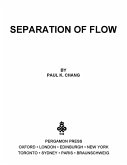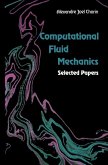This 16-chapter work begins with experimental topics, including the motion of bubbles in viscoelastic fluids, wave propagation in viscoelastic solids, flows through contractions, and cold-drawing of polymers. The next chapters covering constitutive theories explore the molecular theories for polymer solutions and melts based on statistical mechanics, the use and limitations of approximate constitutive theories, a comparison of constitutive laws based on various molecular theories, network theories and some of their advantages in relation to experiments, and models for viscoplasticity. These topics are followed by discussions of the existence, regularity, and development of singularities, change of type, interface problems in viscoelasticity, existence for initial value problems and steady flows, and propagation and development of singularities. The remaining chapters deal with the numerical simulation of flow between eccentric cylinders, flow around spheres and bubbles, the hole pressure problem, and a review of computational problems related to various constitutive laws.
This book will prove useful to chemical engineers, researchers, and students.
Dieser Download kann aus rechtlichen Gründen nur mit Rechnungsadresse in A, B, BG, CY, CZ, D, DK, EW, E, FIN, F, GR, HR, H, IRL, I, LT, L, LR, M, NL, PL, P, R, S, SLO, SK ausgeliefert werden.









